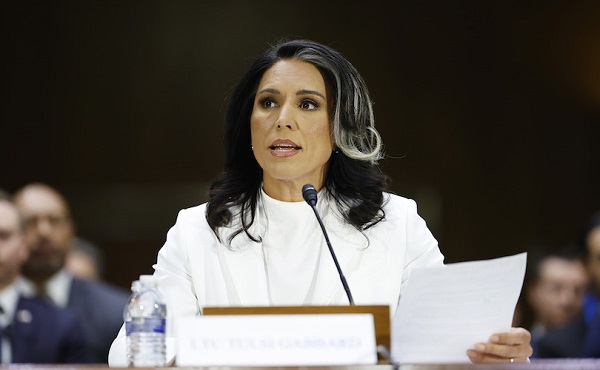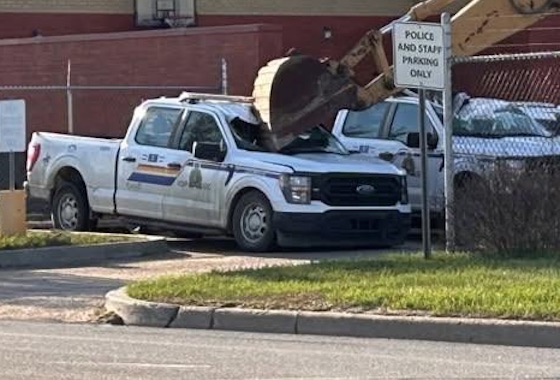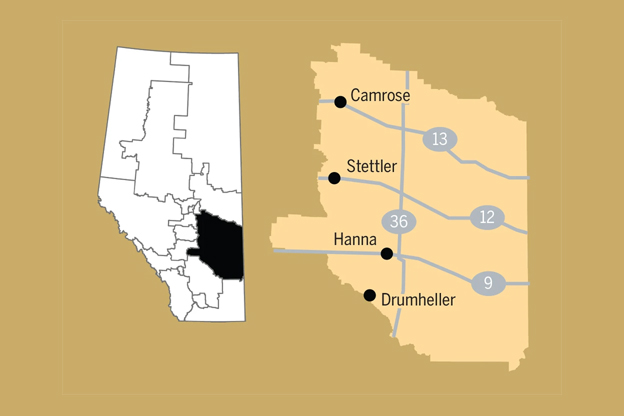Uncategorized
Kavanaugh’s accuser wants FBI to investigate before hearing

WASHINGTON — Christine Blasey Ford wants the FBI to investigate her allegation that she was sexually assaulted by Supreme Court nominee Brett Kavanaugh before she testifies at a Senate Judiciary Committee hearing next week, her lawyers said in a letter to the panel.
The lawyers wrote that Ford, who is now a college professor in California, wants to
An FBI investigation “should be the first step in addressing the allegations,” the lawyers wrote in the Tuesday letter, which was obtained by The Associated Press.
The development came after President Donald Trump showered sympathy on his embattled nominee and as Senate Republicans and Democrats fought determinedly over who should testify at a high-stakes hearing on the allegation just six weeks before major congressional elections.
Trump has already rejected the idea of bringing in the FBI to reopen its background check of Kavanaugh. Should he order such a review, it would likely delay a confirmation vote until after the election. Republicans hope to have Kavanaugh confirmed by Oct. 1, the start of the next Supreme Court term.
In a tweet Tuesday night, Trump wrote: “The Supreme Court is one of the main reasons I got elected President. I hope Republican Voters, and others, are watching, and studying, the Democrats Playbook.”
Meanwhile, Republicans are suggesting that Ford, whose allegations have upended Kavanaugh’s nomination — the committee’s vote was already pushed from Thursday to likely next week — will have one chance to testify, and one chance only.
“Monday is her opportunity,” Senate Majority Leader Mitch McConnell, R-Ky., said Tuesday, a line that was echoed by other Republicans throughout the day.
McConnell expressed confidence that Kavanaugh would be confirmed. “I’m not concerned about tanking the nomination,” he said.
The GOP chairman of the Judiciary Committee, Chuck Grassley of Iowa, said an FBI investigation wouldn’t have bearing on Ford’s testimony so “there is no reason for further delay.”
Grassley said the committee offered Ford “the opportunity to share her story” in a public or a private hearing, or staff interviews, “whichever makes her most comfortable. The invitation for Monday still stands.”
Said Sen. Orrin Hatch of Utah, a key Republican on the panel, said, “We should proceed as planned.”
The furious jockeying over Ford’s testimony underscores the political potency so close to an election that will decide control of both the House and Senate, not to mention the confirmation of a conservative justice likely to serve on the high court for decades.
Democrats complain that Ford was not consulted before the hearing was announced. They also want more witnesses besides Kavanaugh and Ford, hoping to avoid what they said would turn into a “he-said-she-said” moment.
The lawyers for Ford predicted the hearing, as now scheduled, “would include interrogation by senators who appear to have made up their minds” that she is “mistaken” and mixed up.
But Democrats also said Tuesday they were planning to attend the hearing even if Ford did not show up.
Sen. Dick Durbin, D-Ill., said he had “a lot of questions” for Kavanaugh. “A simple denial is not the end of questioning.”
As Democrats press for more time to investigate, Republicans have been careful to say that Ford should have her chance to speak, and they have stressed that they are willing to move Monday’s hearing behind closed doors, if she prefers.
“Were planning on a hearing Monday. It can be open. It can be closed, whatever Ms. Ford wants,” said Sen. John Kennedy, a member of the Judiciary panel from Louisiana. “We’re ready to hear anything she has to say. I am, anyway, and I think most of us are.”
GOP Sen. Bob Corker of Tennessee — among a handful of Republicans who insisted on hearing from Ford before voting — said it would be a “shame” if Ford didn’t show up to testify. But he suggested Republicans will not bend from their offer of a hearing Monday.
“That would be quite something if she decided she did not want to testify,” Corker said. “I’d assume the committee would then move on as they should.”
One witness the Democrats want to hear from is Kavanaugh’s high school friend Mark Judge, who Ford said was in the room when she was assaulted. Kavanaugh has denied Ford’s allegation, and Judge says he doesn’t remember any such thing. “More to the point, I never saw Brett act in the manner Dr. Ford describes,” Judge said in a letter to the panel.
The risks of a public hearing starring the all-male lineup of Republicans on the committee could be high. Republicans said late Tuesday they were considering hiring outside attorneys, presumably including women, to question the witnesses. But that may be moot if Ford declines to appear.
Kavanaugh, 53, was at the White House on Tuesday for a second straight day, but again did not meet with Trump. The president said he was “totally supporting” Kavanaugh and felt “terribly” for him and his family.
“I feel so badly for him that he’s going through this, to be honest with you, I feel so badly for him,” said Trump, who has himself faced numerous accusations of sexual harassment that he’s denied. “This is not a man that deserves this.”
The No. 2 Senate Republican leader, John Cornyn of Texas, noted that Ford has admitted she doesn’t remember some details of the incident. He called the allegations a “drive-by attack” on the judge’s character.
“There are gaps in her memory,” Cornyn said. “She doesn’t know how she got there, when it was and so that would logically be something where she would get questions.”
Criticism like that fed a Democratic narrative that the GOP’s handling of Ford could jeopardize that party’s election prospects in the age of #MeToo, the response to sexual abuse that has torched the careers of prominent men.
“Now this is really what #MeToo is all about, if you think about it,” said Sen. Dianne Feinstein of California, the top Judiciary Committee Democrat. “That’s sort of the first thing that happens, it’s the woman’s fault. And it is not the woman’s fault.”
Meanwhile, Kavanaugh has been calling Republican senators, including Kennedy, who said the nominee was committed to moving forward.
“He’s not happy, he’s upset,” Kennedy said. “He said very clearly and unequivocally, ‘This did not happen.'”
Ford went public with her story Sunday, telling The Washington Post that Kavanaugh had forced himself on her in a bedroom at a party when he was 17 and she was 15, attempting to remove her clothes and clapping his hand over her mouth when she tried to scream. She says she escaped when Judge jumped on the bed.
___
Associated Press writers Kevin Freking, Mary Clare Jalonick, Juliet Linderman and Catherine Lucey contributed from Washington.
Alan Fram And Lisa Mascaro, The Associated Press
Uncategorized
Poilievre on 2025 Election Interference – Carney sill hasn’t fired Liberal MP in Chinese election interference scandal

From Conservative Party Communications
“Yes. He must be disqualified. I find it incredible that Mark Carney would allow someone to run for his party that called for a Canadian citizen to be handed over to a foreign government on a bounty, a foreign government that would almost certainly execute that Canadian citizen.
“Think about that for a second. We have a Liberal MP saying that a Canadian citizen should be handed over to a foreign dictatorship to get a bounty so that that citizen could be murdered. And Mark Carney says he should stay on as a candidate. What does that say about whether Mark Carney would protect Canadians?
“Mark Carney is deeply conflicted. Just in November, he went to Beijing and secured a quarter-billion-dollar loan for his company from a state-owned Chinese bank. He’s deeply compromised, and he will never stand up for Canada against any foreign regime. It is another reason why Mr. Carney must show us all his assets, all the money he owes, all the money that his companies owe to foreign hostile regimes. And this story might not be entirely the story of the bounty, and a Liberal MP calling for a Canadian to be handed over for execution to a foreign government might not be something that the everyday Canadian can relate to because it’s so outrageous. But I ask you this, if Mark Carney would allow his Liberal MP to make a comment like this, when would he ever protect Canada or Canadians against foreign hostility?
“He has never put Canada first, and that’s why we cannot have a fourth Liberal term. After the Lost Liberal Decade, our country is a playground for foreign interference. Our economy is weaker than ever before. Our people more divided. We need a change to put Canada first with a new government that will stand up for the security and economy of our citizens and take back control of our destiny. Let’s bring it home.”
Uncategorized
Canada Needs A Real Plan To Compete Globally

From the Frontier Centre for Public Policy
Ottawa’s ideological policies have left Canada vulnerable. Strategic action is needed now
As Canada navigates an increasingly complex geopolitical landscape, the next federal government must move beyond reflexive anti—Americanism regardless of its political leanings. Instead, Canada should prioritize national interests while avoiding unnecessary conflict and subservience.
The notion that Canada can stand alone is as misguided as the idea that it is only an economic appendage of the United States. Both perspectives have influenced policy in Ottawa at different times, leading to mistakes.
Rather than engaging in futile name-calling or trade disputes, Canada must take strategic steps to reinforce its autonomy. This approach requires a pragmatic view rooted in Realpolitik—recognizing global realities, mitigating risks, governing for the whole country, and seizing opportunities while abandoning failed ideologies.
However, if Washington continues to pursue protectionist measures, Canada must find effective ways to counteract the weakened position Ottawa has placed the country in over the past decade.
One key strategy is diversifying trade relationships, notably by expanding economic ties with emerging markets such as India and Southeast Asia. This will require repairing Canada’s strained relationship with India and regaining political respect in China.
Unlike past Liberal trade missions, which often prioritized ideological talking points over substance, Canada must negotiate deals that protect domestic industries rather than turning summits into platforms for moral posturing.
A more effective approach would be strengthening partnerships with countries that value Canadian resources instead of vilifying them under misguided environmental policies. Expand LNG exports to Europe and Asia and leverage Canada’s critical minerals sector to establish reciprocal supply chains with non-Western economies, reducing economic reliance on the U.S.
Decades of complacency have left Canada vulnerable to American influence over its resource sector. Foreign-funded environmental groups have weakened domestic energy production, handing U.S. industries a strategic advantage. Ottawa must counter this by ensuring Canadian energy is developed at home rather than allowing suppressed domestic production to benefit foreign competitors.
Likewise, a robust industrial policy—prioritizing mining, manufacturing, and agricultural resilience—could reduce dependence on U.S. and Chinese imports. This does not mean adopting European-style subsidies but rather eliminating excessive regulations that make Canadian businesses uncompetitive, including costly domestic carbon tariffs.
Another key vulnerability is Canada’s growing military dependence on the U.S. through NORAD and NATO. While alliances are essential, decades of underfunding and neglect have turned the Canadian Armed Forces into little more than a symbolic force. Canada must learn self-reliance and commit to serious investment in defence.
Increasing defence spending—not to meet NATO targets but to build deterrence—is essential. Ottawa must reform its outdated procurement processes and develop a domestic defence manufacturing base, reducing reliance on foreign arms deals.
Canada’s vast Arctic is also at risk. Without continued investment in northern sovereignty, Ottawa may find itself locked out of its own backyard by more assertive global powers.
For too long, Canada has relied on an economic model that prioritizes federal redistribution over wealth creation and productivity. A competitive tax regime—one that attracts investment instead of punishing success—is essential.
A capital gains tax hike might satisfy activists in Toronto, but it does little to attract investments and encourage economic growth. Likewise, Ottawa must abandon ideological green policies that threaten agri-food production, whether by overregulating farmers or ranchers. At the same time, it must address inefficiencies in supply management once and for all. Canada must be able to feed a growing world without unnecessary bureaucratic obstacles.
Ottawa must also create an environment where businesses can innovate and grow without excessive regulatory burdens. This includes eliminating interprovincial trade barriers that stifle commerce.
Similarly, Canada’s tech sector, long hindered by predatory regulations, should be freed from excessive government interference. Instead of suffocating innovation with compliance mandates, Ottawa should focus on deregulation while implementing stronger security measures for foreign tech firms operating in Canada.
Perhaps Ottawa’s greatest mistake is its knee-jerk reactions to American policies, made without a coherent long-term strategy. Performative trade disputes with Washington and symbolic grandstanding in multilateral organizations do little to advance Canada’s interests.
Instead of reacting emotionally, Canada must take proactive steps to secure its economic, resource, and defence future. That is the role of a responsible government.
History’s best strategists understood that one should never fight an opponent’s war but instead dictate the terms of engagement. Canada’s future does not depend on reacting to Washington’s policies—these are calculated strategies, not whims. Instead, Canada’s success will be determined by its ability to act in the interests of citizens in all regions of the country, and seeing the world as it is rather than how ideological narratives wish it to be.
Marco Navarro-Génie is the vice president of research at the Frontier Centre for Public Policy. With Barry Cooper, he is co-author of Canada’s COVID: The Story of a Pandemic Moral Panic (2023).
-

 COVID-192 days ago
COVID-192 days agoStudy finds nearly half of ‘COVID deaths’ had no link to virus
-

 2025 Federal Election1 day ago
2025 Federal Election1 day agoCarney says Liberals won’t make voting pact with NDP
-
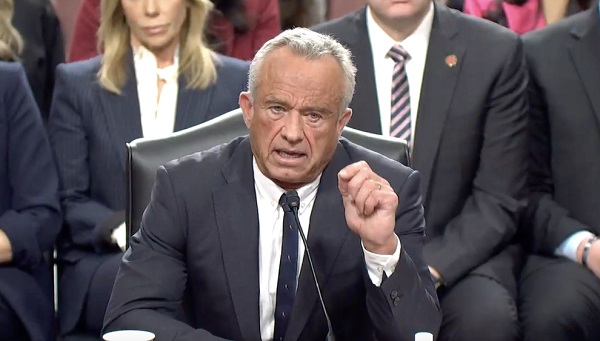
 Autism1 day ago
Autism1 day agoNIH, CMS partner on autism research
-
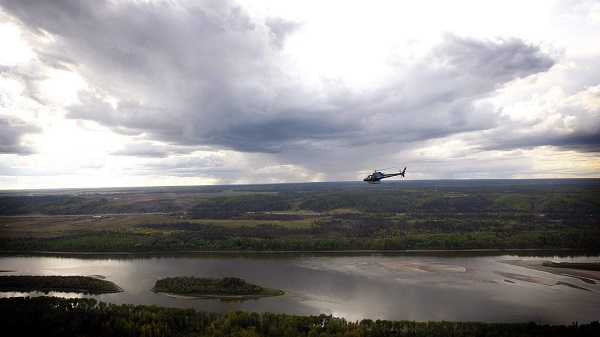
 Alberta2 days ago
Alberta2 days agoEnergy projects occupy less than three per cent of Alberta’s oil sands region, report says
-

 Energy2 days ago
Energy2 days agoOil tankers in Vancouver are loading plenty, but they can load even more
-

 Alberta2 days ago
Alberta2 days agoCharges laid in record cocaine seizure
-

 Business1 day ago
Business1 day agoInnovative Solutions Like This Plan To Provide Power For Data Centres Will Drive Natural Gas Demand For Decades
-

 Energy2 days ago
Energy2 days agoCarney’s energy superpower rhetoric falls flat without policy certainty
